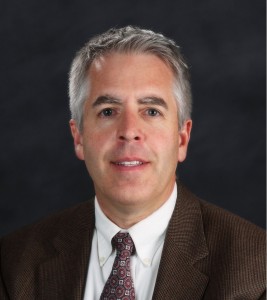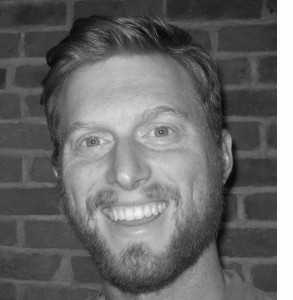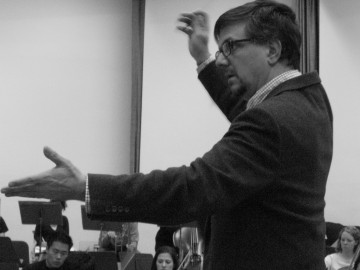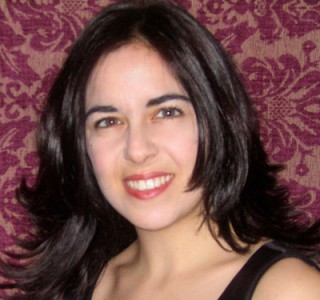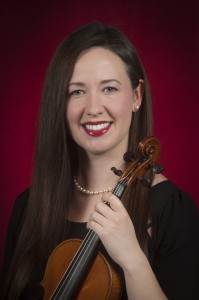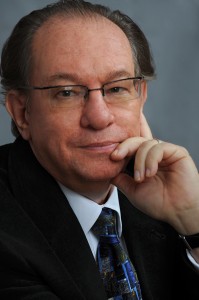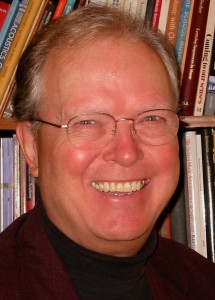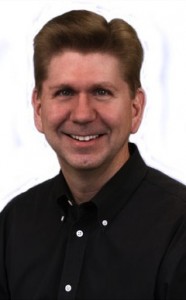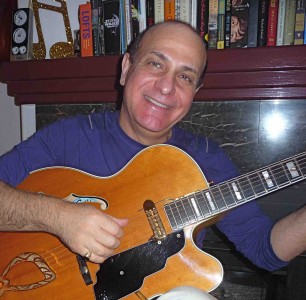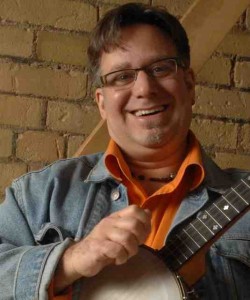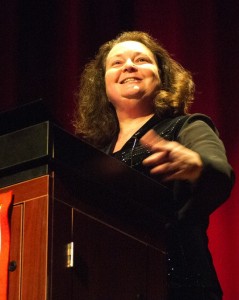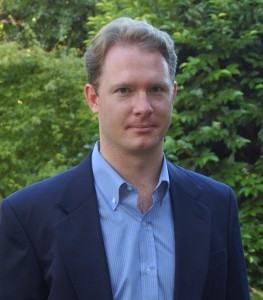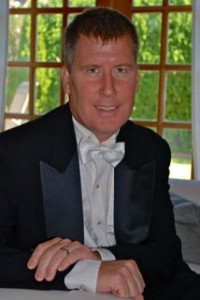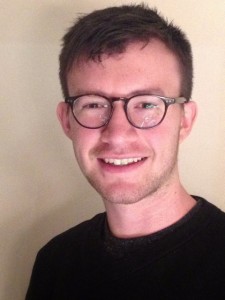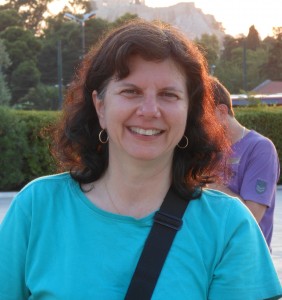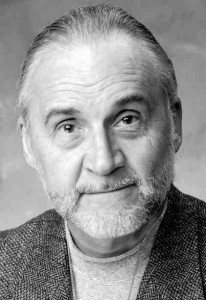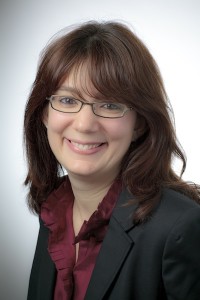Here are the presenters (in alphabetical order) who will be sharing their work at the Colloquium. Please see the schedule page for specific times and locations.
Vincent C. Bates
Weber State University Ogden, Utah, USA
Putting Music to Work: Creative Resistance through Curricular Integration
Vincent Bates is the arts education specialist in the Moyes College of Education at Weber State University. Previously, he taught general music education and French horn at Northwest Missouri State University for six years and K-12 music and art in Eureka, Utah for twelve years. Dr. Bates is a graduate of West Desert High School (in Partoun, Utah), Brigham Young University (B.M., M.M.), and the University of Arizona (Ph.D.). He serves as associate editor of Action, Criticism, and Theory for Music Education (ACT) and has written articles on social class and rural music education in the Music Educators Journal, the Journal of Music Teacher Education, and ACT. Vince lives in Layton, Utah, with his wife and four children. In addition to music, art, and teaching, he enjoys gardening and hiking.
Adam Patrick Bell
New York University New York, New York (and Toronto, Ontario, Canada)
Subversive Studios: Vignettes of “The Ninety-Eight Percent”
Adam Patrick Bell received his Ph.D. in Music Education from New York University in 2013. His dissertation, Oblivious Trailblazers: Case Studies of the Role of Recording Technology in The Music-Making Processes of Amateur Home Studio Users, examined how musicians coopt the role of the audio engineer when making music with digital audio workstations (DAWs). Additionally, Adam served as a researcher and instructor at the Nordoff-Robbins Center for Music Therapy in Manhattan from 2009-2012. Adam has published in the International Journal of Education and the Arts and presented to the Northeast Music Cognition Group at Yale University. Adam’s professional musical work includes many commercial recordings for film and television. He has had two music videos premiere on MuchMusic and composed an award-winning composition for Coca Cola titled “Message in a Bottle,” which played in 20,000 AMC theatres across the USA.
Louis Bergonzi
University of Illinois at Urbana-Champaign Urbana, Illinois, USA
… not for just “The Gays”: LGBT and Queer Studies’ Potential to Inform Music Education Practice and Research”
Louis Bergonzi is the Daniel J. Perrino Professor in Music Education, and Professor of Orchestral Conducting at the University of Illinois. He was on the faculty of the Eastman School of Music for 16 years where he was Director of the Rochester-Eastman Urban String Project, a multifaceted program for preparing studio and group string teachers for work in urban settings. He was co-director of Establishing Identity: LGBT Studies and Music Education I and II (2010/2012), symposia designed to provide energy to the discussion of how LGBT issues operate within music education in terms of research, curriculum, teacher preparation, and the musical lives and careers of LGBT music students and teachers. His current research investigates whether music classrooms, peers and teachers are more supportive of all students than non-music counterparts because of deeper connections to students and families that result from multi-year contact and the types of activities in which music students engage while in school.
Susan A. Davis
Brooklyn College Conservatory of Music
Brooklyn, New York, USA
Good Work in Music Education: Negotiating an Accountability Agenda and Ethical Responsibility
Susan A. Davis is Assistant Professor and Coordinator of Music Education at Brooklyn College Conservatory of Music where she teaches undergraduate and graduate courses in research, music education philosophy and methods. Susan is a violinist and vocalist who taught in the public schools for 14 years before earning her Ph.D. from New York University. Her research interests include music education philosophy, community music and music teacher preparation. She has presented her research at state, national and international conferences.
Kara G. Eaton
Lynchburg College Lynchburg, Virginia, USA
In Pursuit of A Good Life: Advocacy for “Throwback” School Music Classes
Kara received her Ph.D. in music education at New York University (2013) and her bachelor of music in violin performance (2003) and her master of arts in teaching (2004) in K-12 music from the University of North Carolina at Chapel Hill. Her research interests include string instrument teaching and learning in schools, studio, and community settings and lifespan involvement in music making. As an instrumental music teacher in the New York City Public Schools for several years, Kara gained experience teaching orchestra, beginning strings, and general music to both high school and elementary students. As a private violin teacher, she maintained studios in North Carolina and New York for 10 years. In addition to teaching and learning, she enjoys fiddling, playing her violin in orchestras in her community, cooking, and movies.
David J. Elliott
New York University New York, New York, USA
Personhood and Music Education
David J. Elliott is Professor of Music and Music Education at New York University
Prior to joining NYU in 2002, he was Professor of Music Education at the University of Toronto for twenty-eight years. He has also held visiting professorships at Northwestern University, the University of North Texas, Indiana University, the Puerto Rico Conservatory of Music, and elsewhere. He is the author of Music Matters: A New Philosophy of Music Education, as well as numerous journal articles and invited book chapters, and he is the current editor of Action, Criticism, and Theory for Music Education.
J. Terry Gates
The Hoenny Center for Research and Development in Teaching St. Louis, Missouri, USA
Toward a Policy Framework for Music Education Programs in Democracies
J. Terry Gates retired from full-time university teaching in summer 2001 after 43 years of elementary, secondary and higher education teaching and administration in Illinois, Ohio, Alabama, and New York. He was part of the group that developed New York’s Frameworks for Arts Education. His contributions to the research literature include history and criticism in music teaching and learning, edited books in music education, speeches and workshops, and articles on arts education policy. He is co-founder of The MayDay Group, an international organization of music education theorists. Gates’ doctoral degree is from the University of Illinois. He lives in St. Louis, where he continues his international organizational work and his research activities as founding president/CEO of The Hoenny Center for Research and Development in Teaching.
J. Scott Goble
The University of British Columbia Vancouver, British Columbia, Canada
Music education and metamusicality: Present opportunities, limitations, and exigencies
J. Scott Goble is Associate Professor of Music Education at the University of British Columbia, where he teaches graduate and undergraduate courses and supervises work of M.Ed., M.A., and Ph.D. students. A specialist in vocal and choral music, he taught music in public schools near Seattle, Washington, later serving on the music faculties of Haverford and Bryn Mawr Colleges, Boston University, and San Francisco State University. Scott Goble has conducted choirs and orchestras in educational, professional, church, and community contexts throughout North America. His 2010 book What’s So Important About Music Education? was released in paperback by Routledge in March 2012. His university Webpage can be found at: <http://edcp.educ.ubc.ca/faculty/j- scott-goble>
Peter Gouzouasis and Danny Bakan
The University of British Columbia Vancouver, British Columbia, Canada
An ethos in music education: Where are teachers and learners in music education research?
Peter is a lifelong learner of music, and still pursues studies, studio work, and performance of guitar and other fretted instruments in jazz, North American folk, Celtic, and Greek music contexts. At UBC, he teaches undergrad and grad courses in music education, research methodologies, and curriculum. His amodernist perspectives on music acquisition and music learning and his work as a studio musician have led him to explore research in both traditional and new media contexts. He has been actively involved in writing ground breaking arts-based educational research (ABER) since 2002 and has been a part of developing a new form of ABER with the internationally acclaimed A/r/t/ography Research Group at UBC.
Danny is a scholar, musician, songwriter, educator, and performing artist. He is currently a doctoral candidate in music education at the University of British Columbia (UBC). His artistic portfolio includes two CDs of original songs, performances across North America, theatrical productions, dance scores, children’s musicals, and appearances on CBC, syndicated US radio, and NPR. Danny holds a Masters degree in Curriculum, Teaching and Learning from OISE/UT, has taught music and creative arts pedagogy at Ryerson University’s School of Early Childhood Education and UBC’s Faculty of Education. He writes songs, writes about song, sings songs and is interested in arts-based research, musician identity, digital practices, and the emergent method of a/r/tography in music.
Oeida Hatcher, Kara Eaton, Cynthia Ramsey
Lynchburg College Lynchburg, Virginia, USA
Community Bridges: Building Music Relationships That Last
Oeida M. Hatcher, associate professor, serves Lynchburg College as the Dean of the School of Communication and the Arts where she also conducts the Wind Symphony and LC Orchestra. Oeida earned her doctor of musical arts and master of music education from Shenandoah Conservatory. An avid educator, she maintains an active schedule as guest conductor, clinician, and lecturer at the public school/university levels. Most recently, she was the guest conductor for the International Schools of China choral festival held in Tianjin, China. Her research in computer-based multimedia for college-level instrumental methods courses has led to presentations throughout the United States (Chicago, Oregon, Virginia, Connecticut, Rhode Island) and Europe (Germany). She continues to conduct research related to assessment practices for collegiate music appreciation classes and has shared her findings at the Third International Symposium of Assessment in Music Education held in Bremen, Germany and the International Keyboard Symposium in London, England.
Kara Eaton – See bio above
Cynthia B. Ramsey, an Associate Professor of Music, earned her Doctor of Musical Arts (Music Education) and Master of Music Education degrees from Shenandoah Conservatory in Winchester, Virginia. She currently teaches graduate and undergraduate courses in Music Education, Music History and Literature, Research Methods, and conducting at Lynchburg College where she serves as the Chair of the Music Department, Director of Music Education, and Director of Keyboard Studies. Cynthia maintains a piano studio, encourages student research, presents an annual lecture in the field of piano performance, and has rekindled her piano recital skills by presenting solo and duet recitals within the Lynchburg community. Her research in Keyboard Improvisation has been presented nationally (Virginia, Atlanta, Las Vegas, Connecticut, Rhode Island, and Oregon) and internationally in Bremen, Germany, and the Royal Academy of Music in London, England.
David G. Hebert
Grieg Academy-Faculty of Education, Bergen University College Bergen, Norway
Academia or Academi/Blackwater?: Upholding Artistry, Liberty and Community for Music Education in the Era of ‘Stellar Wind’
David G. Hebert, Ph.D., is a full Professor of Music with the Grieg Academy-Faculty of Education, Bergen University College, Norway. He previously held positions with universities in the USA, Finland, Japan, Russia, and New Zealand, and has directed research projects on six continents. His writings appear in 25 different professional journals, and his recent books include Wind Bands and Cultural Identity in Japanese Schools and Patriotism in Nationalism in Music Education (co-edited with Alexandra Kertz-Welzel). He has also published chapters in Oxford Handbook of Music Education, De-Canonizing Music History, Sociology and Music Education, Music of Japan Today, Alta Musica, Multicultural Perspectives in Music Education and other books. Prof. Hebert is currently co-editing a book entitled Theory and Method in Historical Ethnomusicology. He performs as a jazz musician and choral singer, conducts brass bands, and teaches courses in psychology of music, music education philosophy, research methods, modern music history, and trumpet.
D. Scott MacLennan
The University of British Columbia Vancouver, BC, Canada
Freire’s Dialogical Method in Today’s Band Class
Scott MacLennan is a Ph.D. student in Music Education (Curriculum and Pedagogy) at the University of British Columbia, as well as the Music Director of Bands and Symphonies at Lord Byng Secondary School in Vancouver, B.C. Since beginning his career in the Vancouver area in 1997, Scott has directed his award winning ensembles in various locations throughout China, Great Britain, Germany, Austria, Belgium, France, Italy, Canada, and the United States. He has worked with different B.C. schools as a guest clinician/conductor and guest conducted the Vancouver Metropolitan Orchestra in 2008 and 2009. After developing curriculum for Symphony 10-12, a course created for use in the Vancouver School District, he was hired by the Vancouver Symphony Orchestra to edit and draft curriculum for their VSO Connects (Secondary) program. Scott’s research involves examining the variation in students’ conceptions of their ancillary physical movements during performance.
John O’Flynn
St Patrick’s College, Dublin City University Dublin, Ireland
Re-appraising Music as Humanities in Higher Education and in Society
John O’Flynn is Senior Lecturer and Head of Music at St Patrick’s College, Dublin City University. He has many years’ music teaching experience at elementary, conservatoire and university levels, and has worked extensively for in-career music development. He currently acts as chair for the Society for Music Education in Ireland, and as well as for the Council of Heads of Music in Higher Education (Ireland), and is a member of the editorial board for Music Education Research. Recent awards include a Government of Ireland IRCHSS fellowship in 2008 and a research fellowship from The Institute for Research in Irish Historical and Cultural Traditions in 2011. John’s varied research interests include the sociology of music, music education practice, and contemporary genres/practices of music in Ireland. He has contributed to international publications in the areas of national identity and music, popular music, the sociology of music and intercultural music education. He is author of The Irishness of Irish music (Ashgate, 2009) and co-editor of the forthcoming Music and Identity in Ireland and Beyond (Ashgate). In 2012 he co-edited a special issue on music in higher education for Music Education Research.
James Owen
Boonton Public Schools Boonton, New Jersey, USA
Anita Prest
The University of British Columbia Vancouver, British Columbia, Canada
The corporatization of schooling and its effects on music education: A critical Deweyan perspective
Anita Prest is a Ph.D. student in Curriculum and Pedagogy at the University of British Columbia. She has a Master of Music (Wind Conducting) from the University of Calgary and a Bachelor of Music (Music Education) from the University of Victoria. Anita taught band, choir, music composition, and music theatre in the small community of Keremeos in British Columbia for 16 years. For ten years, she was the artistic director of the Music Under the K Festival, a community-based, non-competitive festival that supported music making of all kinds by people of all ages. Her research concerns the effects of bridging social capital emerging from rural school-community music partnerships on community vitality and conceptions of the value of music education.
Thomas A. Regelski
Helsinki University Helsinki, Finland
Praxis: A lexicon for music education’s future
Thomas A. Regelski is “Distinguished Professor” (Emeritus), State University of New York at Fredonia NY. A graduate of SUNY Fredonia, and a former public school music teacher, he took his Masters degree in choral music education at Columbia University, and his Ph.D. in Comparative Aesthetics at Ohio University. He taught choral conducting, secondary school music education methods, and foundations courses to undergraduate and graduate students at SUNY Fredonia. He has taught at Aichi University in Nagoya, Japan, the Sibelius Academy in Helsinki, Finland (where he had a Fulbright Award in 2000), Helsinki University, and was a research fellow at the Philosophy of Education Research Center at Harvard University. He is the co-founder of the MayDay Group, an international/interdisciplinary society of scholars interested in music, music education, and cultural studies and, from its inception until 2007, editor of its e-journal, Action, Criticism, and Theory for Music Education. In addition to over 100 published journal articles, he is author of Principles and Problems of Music Education (1975), Arts Education and Brain Research (1978), Teaching General Music (1981), Teaching General Music in Grades 4-8 (2004), and co-editor (with J.T. Gates) of Music Education for Changing Times (2009). He is presently a docent at Helsinki University, teaching courses in scholarly writing, and he teaches occasionally at the Sibelius Academy.
Marissa Silverman
John J. Cali School of Music, Montclair State University Montclair, New Jersey, USA
Politics, Democracy, and an Ethic of Care for Music Education
Marissa Silverman is Assistant Professor and Coordinator of Undergraduate Music Education at the John J. Cali School of Music of Montclair State University. A Fulbright Scholar, her research interests include urban music education, music and social justice, interdisciplinary education, community music, secondary general music, curriculum development, and topics in the philosophy of music and music education. In addition to articles in The International Journal of Music Education, Music Education Research, Research Studies in Music Education, and The International Journal of Community Music, she has published invited book chapters in The Oxford Handbook of Music Education Philosophy, Music, Health and Wellbeing, and The Oxford Handbook of Music Education.
